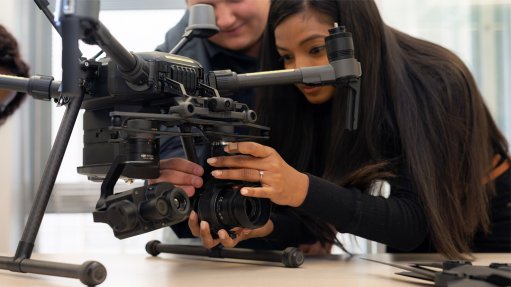
PILOT LICENCE TRAINING DSL is able to assist with this approval process and we train students for the RPL
Operating a drone legally in South Africa for commercial purposes requires complying with legal requirements, and obtaining a remote pilot licence (RPL), says leading training organisation Drone Safety and Legal (DSL) GM Bridgette Tucker.
As a member of the internationally listed, Delta Drone International (DLTI) Group, DSL provides a range of certification, compliance and advisory services to the budding drone sector across Africa.
Tucker explains that Part 101 of the South African Civil Aviation Authority legislation outlines that operating a drone, or as it is technically named, a remotely piloted aircraft (RPAS), requires that as an individual, one needs an RPL and, as a company, an RPAS operating certificate.
Compliance with these regulations is necessary in building a sustainable and thriving industry, she adds.
“DSL is able to assist with this approval process and we train students for the RPL,” says Tucker.
She adds that while obtaining an RPL provides the legal right to operate a drone locally, not every qualified pilot has the skill to service complex industries, and as such, DSL has developed industry specific pilot courses.
“Our mining, engineering and agriculture RPL courses are run in partnership with the University of Pretoria (UP). These courses are invaluable, as prospective student pilots are also able to obtain their RPL and additional specialist training to service these sectors provided by DSL’s experienced team”, says Tucker.
Obtaining the RPL to operate a drone, or unmanned aerial vehicle, requires that the course, typically taking two to three weeks, be completed, which takes into account weather delays and additional training, if required.
“We offer courses online and at our offices in Broadacres, in Johannesburg; however, the radio licence and theory exam are done at our head office at the training facility at UP,” says Tucker.
The course comprises theoretical and practical subjects, with the former being presented over six days and covering the topics of air law; meteorology principles of flight and batteries; navigation, aircraft technical and general; and radio operational procedures and human performance.
This also includes a final examination and radio ground school.
On completion of the theory section, the students are requested to join in-person practical sessions for a week at the company’s UP training facility, explains Tucker.
“We also allow for extra training time, should students need additional training. We keep additional time for this prior to the final practical exam, where delegates are signed out by a designated RPAS examiner.”
There are, however, a few pre-requirements that are compulsory to complete the training for obtaining an RPL.
An applicant must be 18 years or older and must hold current medical pre-conditions and only successful completion will be accepted.
Moreover, prospective graduates must also pass the recognition of prior learning practical assessment, as well as the radiotelephony examination, which is part of the theoretical training.
Applicants must also have achieved an English Language Proficiency Level 4 or higher, she adds.
Tucker highlights that DSL prides itself on providing world-class training programmes and its hands-on approach.